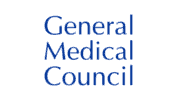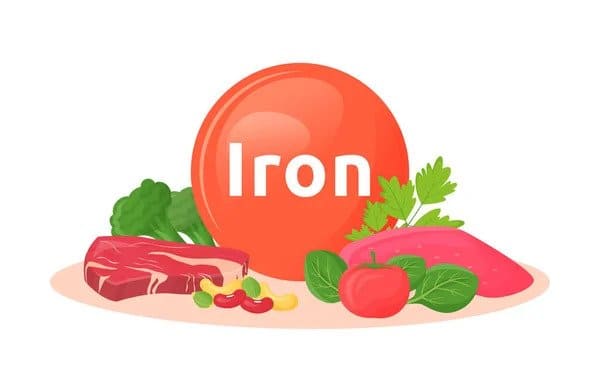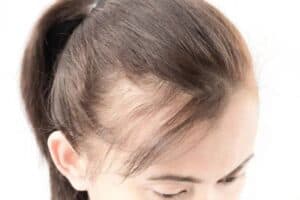Hair loss is a common concern that affects both men and women worldwide. There are various factors that can contribute to this issue, and one such factor that has been gaining attention is the link between low iron levels and hair loss. In this article, we will delve into the relationship between low iron and hair loss, exploring the scientific evidence and providing valuable insights for readers seeking to understand this connection better.
Understanding the Link Between Low Iron and Hair Loss
Iron is an essential mineral that plays a crucial role in various bodily functions. It is a key component of haemoglobin, the protein responsible for transporting oxygen throughout the body via red blood cells. This oxygen is vital for the proper functioning and nourishment of all body tissues, including hair follicles. Iron also contributes to enzymatic reactions that support cell growth, repair, and metabolism.
The Connection Between Iron Deficiency and Hair Loss
Studies have shown that low iron levels, also known as iron deficiency anaemia, can be linked to hair loss. When the body lacks sufficient iron, it can disrupt the hair growth cycle, leading to a condition known as telogen effluvium. Telogen effluvium is a type of temporary hair loss characterised by an increased shedding of hair due to a shift in the hair growth cycle.
During normal hair growth, hair follicles go through various stages, including the anagen (growth) phase, the catagen (transition) phase, and the telogen (resting) phase. An iron deficiency can disrupt this cycle, causing a higher percentage of hair follicles to enter the telogen phase simultaneously. As a result, more hair is shed than usual, leading to noticeable hair thinning and hair loss.
It’s important to note that iron deficiency anaemia is not the sole cause of hair loss. There are numerous factors that can contribute to hair loss, including genetics, hormonal changes, stress, and certain medical conditions. However, if you notice excessive hair shedding or thinning, it’s worth considering iron deficiency anaemia as a possible underlying factor.
It’s also worth noting that addressing iron deficiency may not lead to immediate hair regrowth. It can take several months of iron supplementation and a balanced diet to replenish iron stores in the body and restore hair health. However, by incorporating iron-rich foods into your diet or taking iron supplements as recommended by your healthcare provider, you may see improvements in hair growth over time.
Identifying Iron Deficiency-Induced Hair Loss
It’s essential to recognise the signs of iron deficiency-induced hair loss to address the issue promptly. Some common symptoms of iron deficiency include:
- Increased Hair Shedding: If you notice an unusually large amount of hair in your brush or shower drain, it could be a sign of telogen effluvium caused by low iron levels.
- Brittle and Thin Hair: Iron deficiency can lead to changes in the hair’s texture, making it more brittle, dry, and prone to breakage.
- Pale Skin and Fatigue: Apart from hair-related symptoms, iron deficiency often manifests as pale skin, weakness, and persistent fatigue.
Other Factors that Contribute to Hair Loss
While iron deficiency can contribute to hair loss, it’s essential to consider other factors that can affect hair health as well. Some of these factors include:
- Genetics: Family history plays a significant role in determining hair loss patterns. Certain genes can make individuals more susceptible to hair thinning and baldness.
- Hormonal Changes: Hormonal imbalances, such as those experienced during pregnancy, menopause, or thyroid disorders, can lead to hair loss.
- Stress: Emotional or physical stress can disrupt the normal hair growth cycle, leading to excessive shedding.
- Diet and Nutrition: Poor nutrition, including inadequate intake of iron-rich foods, can contribute to hair loss.
- Medical Conditions: Certain medical conditions like alopecia areata, scalp infections, and autoimmune diseases can cause hair loss.
It’s crucial to address these factors and maintain a healthy lifestyle to minimise hair loss. If iron deficiency is identified as the cause, healthcare professionals may recommend iron supplements or dietary changes to restore iron levels and promote hair growth.
Managing and Preventing Hair Loss Due to Low Iron
If you suspect that low iron levels might be contributing to your hair loss, it is crucial to consult a healthcare professional for proper diagnosis and treatment. Here are some strategies to manage and prevent hair loss due to iron deficiency:
- Balanced Diet: Ensure your diet includes iron-rich foods such as red meat, poultry, fish, beans, lentils, spinach, and fortified cereals. Combining these with foods high in vitamin C can enhance iron absorption.
- Iron Supplements: In some cases, a healthcare provider may recommend iron supplements to boost iron levels. However, it is essential to use them under professional guidance, as excessive iron intake can be harmful.
- Address Underlying Causes: Identify and address any potential underlying causes of iron deficiency, such as gastrointestinal disorders or heavy menstrual bleeding in women.
- Lifestyle Changes: Adopt a healthy lifestyle with regular exercise, stress management, and adequate sleep to support overall well-being, including hair health.
Why Does Iron Deficiency Cause Hair Loss?
Iron deficiency can lead to hair loss due to its impact on the physiological processes of hair follicles. While some studies have produced conflicting evidence, most doctors agree that a significant decrease in iron levels in the blood can damage hair follicles, resulting in hair loss. This type of hair loss is known as telogen effluvium, which is characterised by widespread thinning of hair in both men and women, often triggered by intense physical stress or illness.
It’s important to understand that there are various types of hair loss, and a proper diagnosis can only be made by a doctor who takes into account multiple factors such as general health, genetic history, age, and gender. Addressing iron deficiency and seeking professional medical advice are essential steps in managing hair loss effectively.
How Does Iron Deficiency Cause Hair Loss?
Iron deficiency causes hair loss through several mechanisms that disrupt the normal hair growth cycle and affect the overall health of hair follicles. Here’s a detailed explanation of how iron deficiency leads to hair loss:
- Disruption of Oxygen Supply: Iron is a critical component of haemoglobin, the molecule responsible for carrying oxygen in the bloodstream. Oxygen is essential for the proper functioning and nourishment of all body tissues, including the hair follicles. When iron levels are low, there is a reduced capacity to transport oxygen to the hair follicles, leading to inadequate nourishment and compromised hair growth.
- Effect on Hair Growth Cycle: The hair growth cycle consists of three phases: anagen (growth), catagen (transition), and telogen (resting). Iron deficiency can disrupt this cycle, leading to a higher percentage of hair follicles entering the telogen phase prematurely. As a result, more hair is shed than usual during this resting phase, leading to noticeable hair thinning and hair loss.
- Telogen Effluvium: The type of hair loss associated with iron deficiency is often referred to as telogen effluvium. This condition occurs when there is a sudden shift in the number of hair follicles in the telogen phase. As mentioned earlier, this can lead to increased hair shedding and a decrease in hair density.
- Impact on Hair Shaft Structure: Iron is involved in the formation of keratin, a protein that makes up the structure of hair. Insufficient iron levels can affect the proper formation of keratin, leading to hair that is weak, brittle, and more prone to breakage. This further contributes to hair loss.
- Inhibition of Enzymatic Reactions: Iron is essential for various enzymatic reactions that support cell growth, repair, and metabolism. In the absence of sufficient iron, these processes are hindered, affecting the overall health and vitality of hair follicles.
- Nutrient Delivery to Hair Follicles: Iron plays a role in the transport and delivery of nutrients to the hair follicles. When iron levels are low, nutrient supply to the follicles may be compromised, leading to reduced hair growth and increased hair shedding.
Initial Doctor’s Assessment
If your doctor suspects that your hair loss is related to iron deficiency anaemia, they will begin by conducting a blood test to assess the levels of ferritin, a protein that stores iron. If the test reveals low ferritin levels, your doctor will likely recommend iron supplements to address the deficiency and its effects on your body, including hair loss.
Additionally, your doctor may suggest modifying your diet to incorporate more iron-rich foods like red meat, beans, and nuts. If the low iron levels are a result of other factors such as pregnancy complications, heavy menstrual periods, or issues with iron absorption, these underlying conditions will need to be treated first.
Supplementing with iron and making dietary adjustments can lead to the reversal of hair loss caused solely by low iron levels. With consistent treatment, you can expect to see hair regrowth within a few months. Regular follow-up appointments with your doctor will help monitor your progress and ensure that the treatment is effective.
Maintaining a Hair Care Routine
When dealing with hair loss caused by iron deficiency, it’s essential to implement a good hair care routine to minimise the impact and support overall hair health. While there are various shampoos and treatments on the market that claim to slow hair loss and promote regrowth, it’s important to note that scientific evidence supporting these claims is limited.
In most cases, the primary approach to preventing hair loss related to iron deficiency is to address the underlying condition, which is the low iron levels. To effectively treat hair loss caused by iron deficiency, medical intervention, such as iron supplementation and dietary adjustments, is necessary.
Over-the-counter hair products, such as minoxidil (commonly known as Regaine), have been proven to be effective in treating hereditary hair loss, also known as male/female pattern baldness. However, minoxidil is not the solution for hair loss caused by iron deficiency or other medical conditions.
While these haircare products may not directly stop hair loss due to iron deficiency, they can still be beneficial in maintaining the health and appearance of existing hair. Properly caring for your hair can make thinning or patches less noticeable and contribute to improved confidence.
In addition to using haircare products, exploring different hairstyles can also help in concealing hair loss and boosting self-assurance. Remember that treating iron deficiency through medical intervention is the most effective way to address hair loss and promote hair regrowth in such cases. A holistic approach that combines medical treatment and hair care practices can lead to healthier, fuller-looking hair over time.
Conclusion
Low iron levels can indeed contribute to hair loss, and understanding this connection is vital for anyone seeking to tackle the issue effectively. By recognising the signs of iron deficiency-induced hair loss and taking proactive measures to address it, individuals can work towards maintaining healthy and luscious hair. Remember, consulting a healthcare professional is crucial to determine the appropriate course of action tailored to your specific needs. You can contact us to discuss more.








